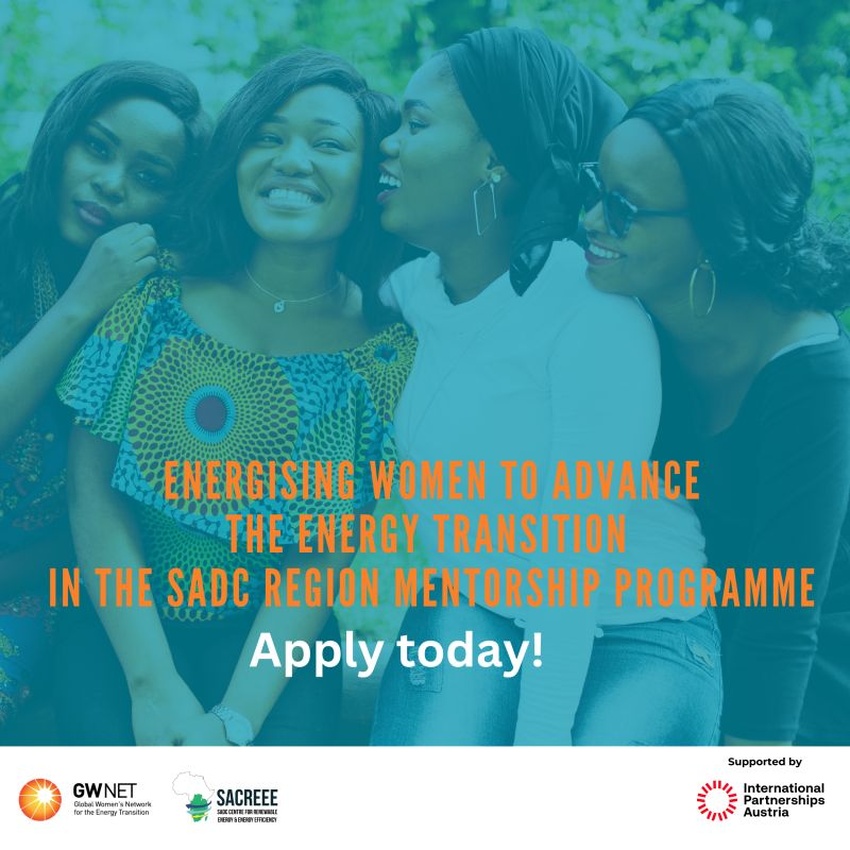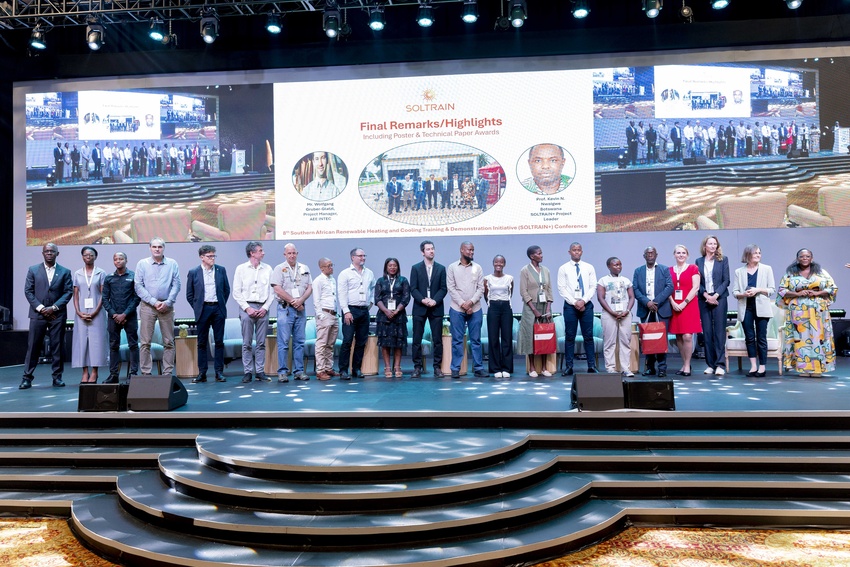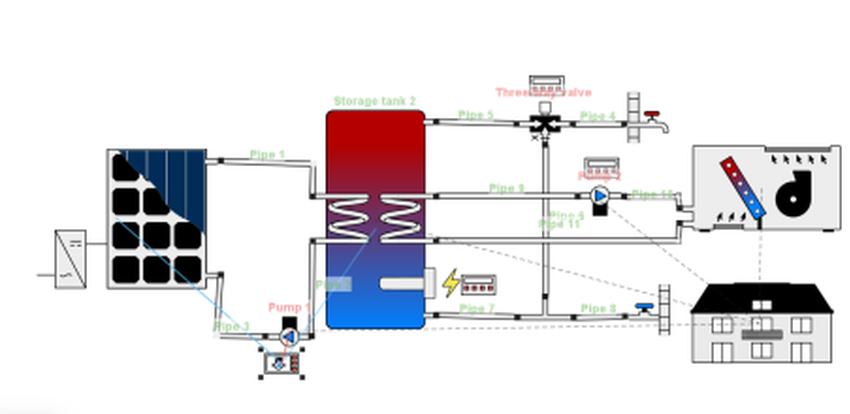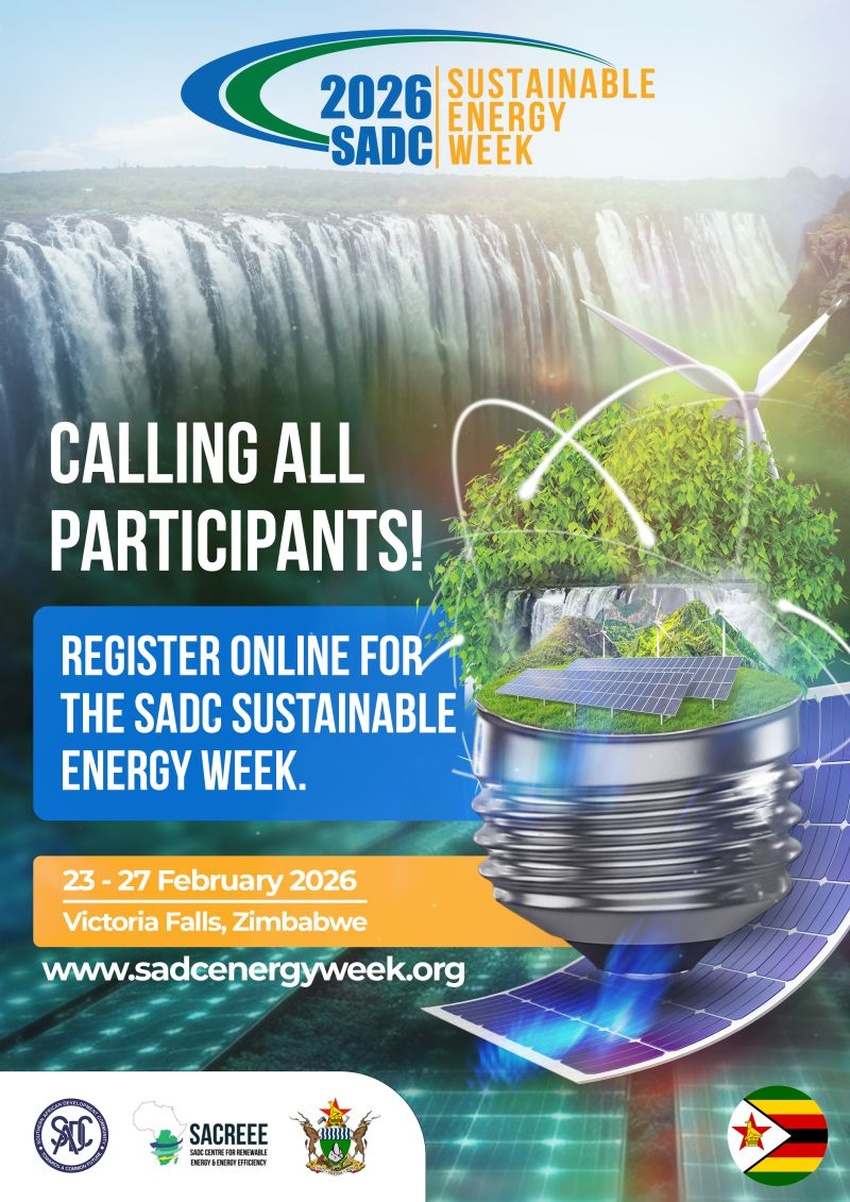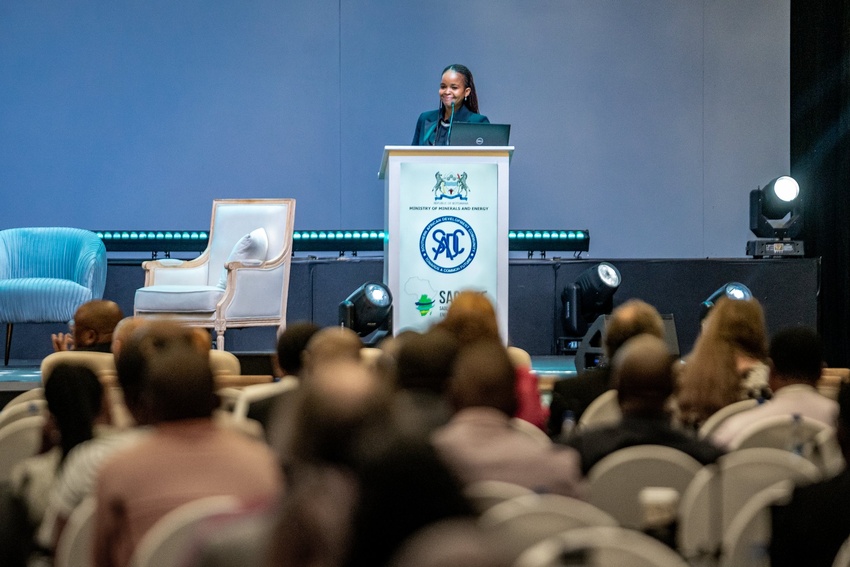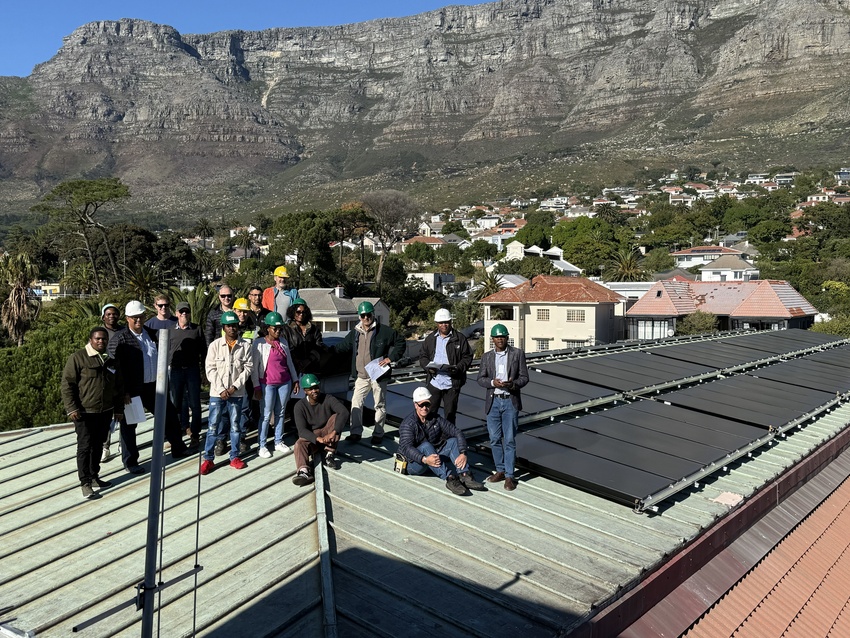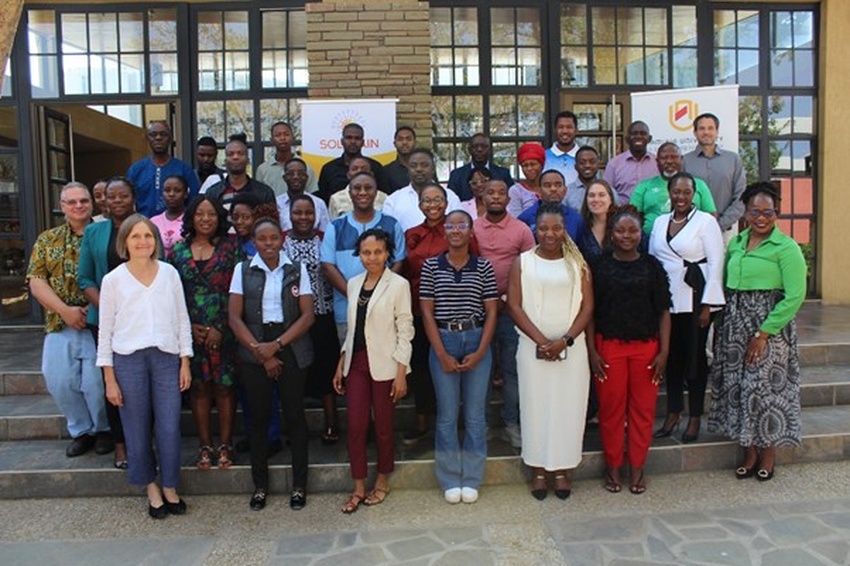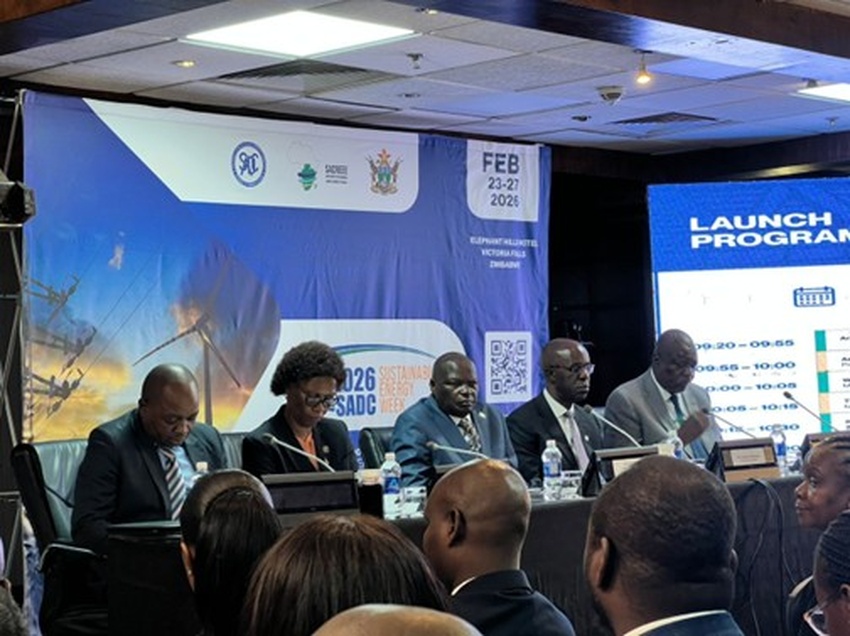New solar thermal heat systems save millions
Submitted by SOLTRAIN Press ReleasePublished 6 years, 6 months ago
The 15th of May 2019 saw the launch of the first solar district heating system and the largest solar process heat system in Sub-Saharan Africa, as the Austrian Ambassador officially launched these two major SOLTRAIN projects. These are the first sub-Saharan district heating plant for Wits University and a solar process heat plant for the Klein Karoo tannery, both of which will save millions in energy costs over the lifetime of the plants.
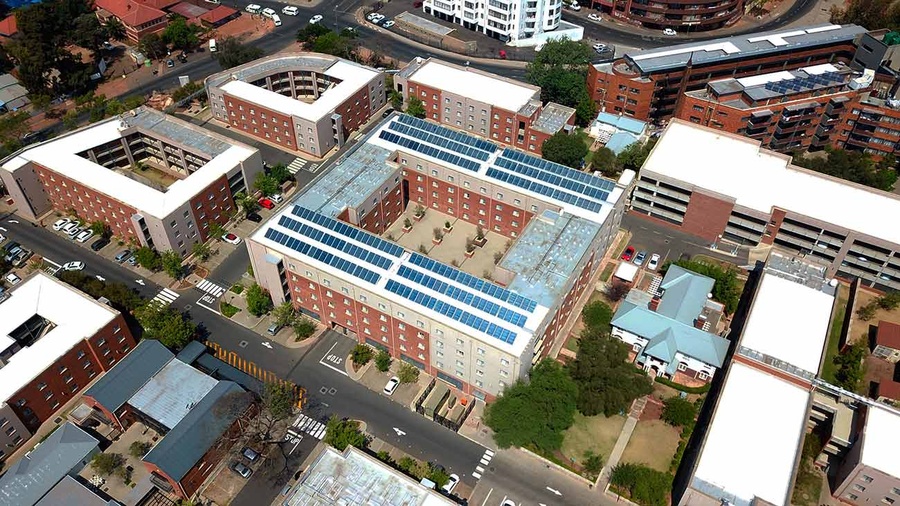
SOLTRAIN - Southern African Solar Thermal Training and Demonstration Initiative - is a regional initiative on capacity building and demonstration of solar thermal systems in the SADC region. The programme in South Africa is managed by the Centre for Renewable and Sustainable Energy Studies (CRSES), at Stellenbosch University, and the South African National Energy Development Institute (SANEDI), in partnership with AEE-Institute for Sustainable Technologies (AEE INTEC) from Austria. It is funded by the Austrian Development Agency and co-funded by the OPEC Fund for International Development (OFID).
“SOLTRAIN is the most important and most successful know-how transfer project that AEE INTEC carries out worldwide,” explains Mr Werner Weiss Director of AEE INTEC. “The two solar thermal systems launched today were built as part of SOLTRAIN and are the two largest solar thermal systems south of the Sahara. We are proud to have supported our South African partners to design and build them.
“The success of the programme has led to the SOLTRAIN programme going into a fourth phase from July 2019 until December 2022. We are already looking forward to the continued excellent cooperation with our South African partners and the joint implementation of many other demonstration projects.
“With a broad transition to solar thermal systems for hot water preparation in the residential but also in the commercial and industrial sectors, the electricity sector in the SADC area could be massively relieved and, moreover, also contribute to the reduction of CO2 emissions, since the vast majority of the power plants in the region are run on coal.
“The 326 solar thermal systems built to date in the SOLTRAIN programme have a solar yield of 1 834 MWh/year and save about 2 000 MWh/year of electricity and avoid annually 638 tons of CO2. If one kWh of electricity is valued at R0.2139, the installed solar thermal systems save R4.3 million in electricity costs per year,” concludes Weiss.
The launch follows the fourth SOLTRAIN Conference, held on 14 May 2019 in South Africa, with all SOLTRAIN SADC partners and the solar sector.
Wits Junction
The first of its kind, the Wits Junction district heating project combines solar, co-generation and gas heating technologies, servicing 14 student residence buildings with hot water from one centralised hot water plant room. Installation includes 600 m2 solar heating plant with 10 m2 Austrian collectors.
“The previous domestic systems were distributed systems on multiple roofs; the new solar layout is on one central roof,” explains Wally Weber of BlackDot Energy, one of the project developers.
“A combined system uses the advantages of each technology: solar has a very low running cost, while CHP (combined heat and power) gives continuous base load coverage. The combination covers thermal and essential electrical loads.
“There are 1 103 students in the 14 buildings, with an average consumption of 94 000 litres of hot water per day. Peak demand is in the morning, averaging 30% of daily consumption, with a maximum demand of 28 200 litres in an hour. The system supplies the entire hot water demand, including kitchens, laundry, cleaning and other domestic uses. Each student has his/her own kitchen and there are some centralised service rooms for cleaning staff.
“Since the system was commissioned, the complaints of not having hot water have reduced by 98%. The redundancy design guarantees supply, also during maintenance periods.
“The estimated costs savings are R40 million over the next 20 years and already the University has seen substantial electricity savings over the trial period of eight months. As the electricity cost from the co-generator is equal to municipal cost, the thermal energy is free and the centralised plant requires a lot less maintenance intervention, hence less costs. There is currently a back up water system installation in progress, with 300 000 litre tanks, and a more advanced logging and measurement system is also planned.
“The system has been a major success in not only meeting financial and energy saving parameters but also the service delivery levels have vastly improved. The small interruptions are from water interruptions from municipality or ring main circulation pumps blocked from debris in the water. Unlike previous systems, this project comes with integrated monitoring and maintenance from the very first planning day, moving us towards energy 4.0.”
The design team combined BlackDot Energy, DSB and Holms and Friends, with BlackDot Energy as project leader and appointed engineering company. Holms and Friends did the solar construction.

Klein Karoo tannery
The Klein Karroo International (KKI) tannery section has installed a 600 m2 solar collector system to reduce costs and increase competitiveness, since fuel costs are highly volatile. There was also an underlying strategy to move its production to a more renewable base; however finance was the main driver.
“Stellenbosch University approached various tanneries for process heat application viabilities and this tannery was the most forthcoming and had the budget to contribute to the study,” says Mr Doran Schoeman of E3 Energy.
“The process heat infrastructure uses an oil burner and not electrical heating. The fuel source is LO10 paraffin oil, at an indicated rate of 11.8 kWh per litre. The feasibility study design was that the solar would displace the local fuel, indicated as 60% solar fraction. The savings, based on measurements from the plant, indicate 285 000 kWh, with an average indication of R265 000 for the period of eight months or 24 150 litres of oil.
“Stellenbosch University indicated a payback of 6.5 years, based on a solar fraction of 60%. This is from a financial model analysis from the feasibility study, which includes maintenance, finance costs and all system related expenses.
“Strategically, the approach was to implement a first phase of renewable energy utilising solar thermal, and to monitor actual results to implied savings. There has been no further commitment as yet, as the analysis is still in progress,” ends Schoeman.
Dr Karen Surridge, Centre Manager, Renewable Energy Centre of Research & Development, SANEDI continues, “SANEDI is delighted to be associated with such landmark developments that put the SOLTRAIN projects firmly on the renewables table. The successful conference we have just held with SOLTRAIN partners indicates the relevance of this highly successful programme for the SADC renewable energy strategy and the development in successful systems across six countries.”
